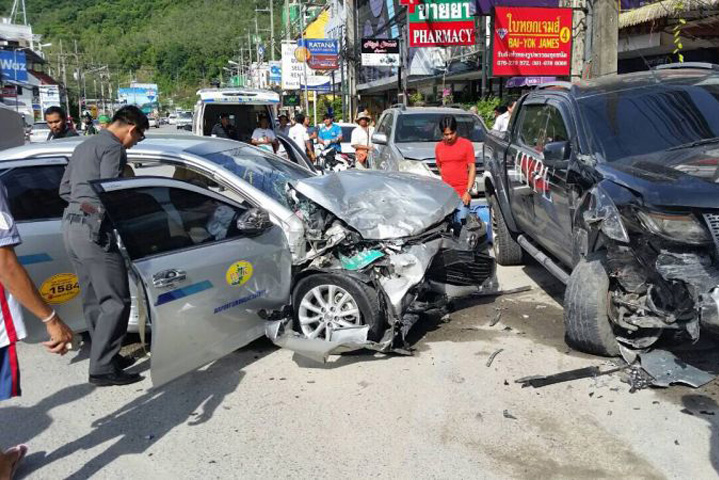
Legal liability relating to negligent road accidents, in particular accidents caused by “brake-failing” buses and the like is my subject in this article.
Certainly, the spate of recent well-publicised bus accidents on Patong Hill alone are a cause for serious concern and discussion in the whole of the Phuket community.
However, this serious, potentially life-threatening, issue does not seem to be limited solely to Patong Hill, or even Phuket for that matter.
As I write this article, I have read that yet again an inter-provincial bus located out of Ubon Ratchatani has slammed into a truck stopped in the middle of the road, causing yet another death and at least a dozen more injuries in Nakhon Rachasima. The bus is ostensibly owned by a ‘tour’ company, according to the report.
When and how will this end?
In the wake of the recent accidents at Patong Hill, authorities have promised to conduct various public hearings, hold land transport committee meetings and to set-up police ‘check points’ in an effort to discuss how to resolve the problem and help curtail the sheer number of road accidents.
Sure, this could be helpful in certain aspects, and it appears good-intentioned proposals have been made (including going forward with the now infamous Patong Hill tunnel project), but I suspect a lot more will need to be done to really get to the root of the problem.
Sometimes, we are asked whether bus or van owners or tour companies can be held liable for the actions of their employed or contracted drivers who cause harm, injury or death to others in road accidents. The general answer is “maybe”, assuming that some agency and/or principal liability can be attributed to the owner or company conducting a tour, or that the owner or tour company acted negligently and breached their duty of care in respect of the use or operation of the bus in question.
Thai law does have certain, but limited, provisions covering these legal circumstances and does permit recovery for injured persons where an owner or tour company is found negligent or reckless, or is found to have somehow committed a “wrongful act” causing the harm.
However, these legal principles have limited value, and are applicable only in the context of the harm having already occurred. Furthermore, connecting the owner or tour company to negligence can give rise to several legal issues and defences, thereby further limiting the legal application in practice.
It is no wonder, then, that police only mention the names or companies of the buses in the accidents, and ultimately, at least so far as we are aware, charge only the drivers with reckless driving causing serious injury or death. Overall, therefore, the law does not currently seem to be an effective deterrent to poor driving and maintenance.
It may, nonetheless, be that there is a a role for lawyers and law firms to take private action on behalf of the countless innocent victims harmed as a result of the high number of road accidents, where authorities have not done so.
That being said, it will inevitably require a far broader community effort to quantitatively reduce the number of bus and other road accidents in Phuket and in greater Thailand.
Driver education and greater responsibility from owners and tour companies is obviously necessary, as is a continued effort from the media to report and investigate all major accidents and subsequent actions taken by authorities to apply appropriate pressure to work for change
Government agencies and private companies must also continue to work to improve road conditions and step up the traffic law enforcement. Whatever it is, there is no overnight solution, and only robust and cooperative efforts among various sectors of society will ultimately reduce the tragic occurrence of road accidents.
In my home country, the United States, this article could be interpreted by some to be a form of ‘ambulance chasing’ advertisement. However, I can say for myself, that I would just like to see the number of ambulances dispatched for road accidents greatly reduced and eventually stopped.
My plea is therefore to all who have some role in improving the situation, including the authorities, bus and tour owners, drivers, lawyers, the police and educators, to help and cooperate with one another to improve road safety for all local residents and visitors alike.
By Robert Krupica, Senior Partner, Hughes Krupica.








